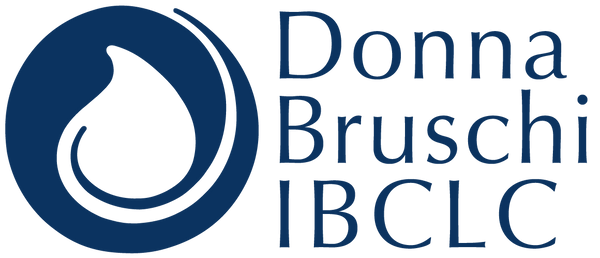"I thought breastfeeding would be easy because it's how our species has survived for like, forever. How hard could it be if a baby's survival depended on it? It didn't take me long- maybe a day- to figure out how dangerous that thinking was."
Yes, breastfeeding is natural. Yes, it’s normal.
But you probably had more education on getting your period than feeding a baby. You have every month to learn about your period and nobody is going to die of starvation if you don’t. And breastfeeding? You and your baby have two or three wobbly days to figure it out before doctors start pushing supplementation and using words like "no milk', ‘failure to thrive', ‘dehydration’ and ‘brain damage’.
Most parents have heard about hind milk and the elusive “good latch”? But what are they and why are they important? Most importantly, "How do you get them?"
Scared Mommy
Many mothers stop breastfeeding in the first few months simply because they truly don't know what normal breastfeeding is like. Today's moms have all of Google and modern medicine at their fingertips, yet they still lack knowledge, experience and education in breastfeeding.
Moms mostly fear not making enough milk.
Because people don’t know how human milk is made, they get scared, and do things that tank their milk supply. They wait until their breasts fill up with milk before they feed which signals the body to make less milk. They supplement with formula. With each ounce of formula fed to the baby, the mom's breasts make one ounce less milk. They try pumping and because they've never pumped before, not much milk comes out. This leads to a panic, which decreases their milk flow, leading to a cranky baby.
Some of these mothers start to pump a lot and then find they have too much milk, along with plugged ducts and mastitis. They are uncomfortably full all the time. Their babies gag and sputter with feeds.
Babies cry for a hundred reasons, not just that you don’t have milk!
The sad thing is when many moms interpret every cry as "My baby is starving. I must not have enough milk."
Babies cry for hunger and thirst. They cry because they are too hot or too cold. It’s too bright or too loud. They are lonely, upset or bored and more. Breastfeeding fixes everything except an overfull tummy and a dirty diaper. But, nobody explains it that way.
How DO you know if your baby is starving? When do you need help?
There's an easy way to really know if your baby is starving. Weigh them. If your baby is staying on their growth curve, they are getting enough milk. They are crying because they need something else.
If they are not gaining enough weight, that's a solid sign that you need help with breastfeeding. You may need to supplement, but start first with figuring out why baby isn't gaining before you supplement.
Moms learn through experience that breastfeeding in the first 4-6 weeks is very different from breastfeeding at 4-6 months. You might have heard it gets faster, easier or better, but in the early weeks when you are going through non-stop feeding, you may not have a way to believe that.
When informed consent isn't informed.
Women make choices during pregnancy and birth to use interventions that are known to make breastfeeding more difficult. Epidurals cause more difficulty breastfeeding. C-sections delay milk production and the mandated separation after a surgical birth interrupts babies' innate reflex patterns causing a cascading sequence of problems.
Some decisions are carefully thought out before they are chosen. A woman with placenta previa has time to learn about and understand the risks of a C-section and prepare for additional breastfeeding support. Many parent's are not receiving the "information" part of informed consent. A c-section, whether its a true emergency, or the result of a non-progressing vaginal birth is presented at the last minute and there isn't time to plan for breastfeeding problems and extra household help at home.
The cure for innocence is education.
Here are five ways to learn more about breastfeeding. Ideally, you do a bit of all of them, because just like breastmilk, even a little bit is a wonderful thing.
A five step cure:
1. Choose doctors that value breastfeeding. Plan for an unmedicated vaginal birth by taking childbirth classes and hire a birth doula to advocate, support and coach you..
2. Educate yourself to prepare for breastfeeding by taking a breastfeeding class and reading all you can. Schedule a prenatal appointment with a lactation consultant to ask questions.
3. Spend time with breastfeeding mothers so that your unconscious mind starts to learn what you need to do and you can ask questions and hear what they say about breastfeeding, the challenges they face and the solutions they know. Attend La Leche League groups or other breastfeeding support groups while you are pregnant.
4. Formula promotional packs are trojan horses that sneak into your house and whisper words of doubt into your ear. Give them away or do not accept them. In most countries, they are not distributed by healthcare professionals until needed. If you need to buy formula, you will be able to.
5. Even if your birth goes all wonky, insist the baby be placed skin-to-skin immediately after birth and wait for the cord to stop pulsing before cutting it. Keep your baby near you and skin-to-skin as much as possible for the first two weeks. After birth, read your baby, not a book. Feed 12-16 times every 24 hours until your baby is gaining weight consistently.


